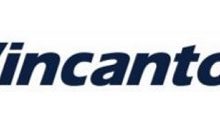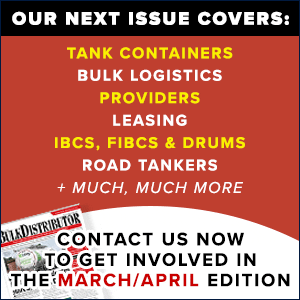
Key highlights include:
- Revenue increase of 1.7% to £1,222m
- Full year growth of 5.6% from continuing businesses, 12.7% in the second half
- Underlying profit before tax of £47.2m (2020: £52.8m)
- Strong balance sheet with net cash position of £11.9m (2020: net debt of £10.1m)
James Wroath, chief executive officer, said:
“Wincanton has made significant progress in a challenging year, showing flexibility, agility and resilience for our customers across our business. These results clearly show the benefits of the breadth of our offer and the commitment of our people who stepped up to meet the challenges we faced. We have grown revenues strongly since the early impact of the pandemic, fuelled by particularly good performance in Digital & eFulfilment and new wins in the public sector. We continue to invest to ensure we can deliver on the opportunities ahead in these markets. While profitability was impacted by the unprecedented disruption caused by Covid-19 in the first half it was significantly ahead of pre-pandemic levels in the second. We have taken this strong momentum into the new financial year and current trading is encouraging.
“We have also made positive progress against the strategy set out last year. We completed the reorganisation of the business, which provides us with a clearer focus on growth markets and ensures we are well placed to respond to the changing dynamics in our markets that have been accelerated by the Covid-19 pandemic. Furthermore, today we set out our new ESG strategy which sets us on a path to net-zero by 2040 with a clear plan to decarbonise our supply chain services and operations.”
New ESG strategy
The strategy, part of the Wincanton Way, outlines plans to deliver long term sustainable solutions across each of its business sectors, digital and eFulfilment, public sector and industrial, general merchandise and grocery and consumer, and to lead the way in responsible supply chain management.
Wincanton’s strategy for improving its impact on the environment is centred around a commitment to provide net zero supply chain solutions across waste, property and fleet. This will help Wincanton support current and future customer engagement, and to offer the highest service standards of supply chain operations when it comes to the environment.
The environmental strategy contains five core commitments:
- Net zero emissions by 2040: Three “net zero roadmaps” have been developed which set out how the Group will achieve its target to be net zero by 2040 across transport, property and waste. The top priorities are being net zero “to home” operations by April 2022, investing in an all-electric company car fleet by 2026 and, in the shortterm, offsetting residual carbon emissions through Wincanton Woodland. Wincanton is already taking strides to meet these commitments and has become the first premium home delivery service in the UK to offer a net-zero solution. As a result, customers including M&S, Loaf, The White Company and Snug, are already utilising Wincanton’s enhanced vehicle technology, electrification and carbon offsetting to create carbon-neutral final mile deliveries.
- Eliminate waste: By 2025, through a waste elimination programme, the Group will double recycling rates and ensure all plastic packaging will contain a minimum 30% of recycled product. By 2030, Wincanton aims to eliminate all single-use plastics, removing up to 300 tonnes of waste.
- Offering net zero propositions to all customers: The Group has committed to providing net-zero deliveries on home delivery operations throughout its transport network by April 2022. As part of this, Wincanton is working on offering diesel alternative fuel options, such as Hydrotreated Vegetable Oil (“HVO”) or biomethane fuel options, that will reduce transport emissions by 70 – 85%.
- Innovation and collaboration: Wincanton is working with its industry partners to tackle some of the big issues within the logistics sector, including how to eliminate red diesel use for refrigeration by 2030 and launching a circular packaging programme.
- Wincanton Woodland: A woodland planting scheme provides Wincanton’s customers an opportunity, in the short-term, to offset their own carbon emission through a certified and recognised programme.
The new environmental strategy is part of a wider ESG strategy, with two other pillars:
- Social – Encouraging the highest standards of behaviour and achievement: a commitment to providing a safe, inclusive and ethical working environment, to support and help al employees grow.
- Governance – Maintaining a strong governance structure: a commitment by the Board and Senior leadership team to deliver against these goals.
James Wroath said at the time:
“Today marks a significant step change in Wincanton’s commitment to deliver long-term sustainable supply chain solutions for our customers. This is something we know is a primary consideration for all businesses which is why we are committed to supporting them every step of the way. “We’re pleased to have already met such a significant milestone to become the first premium home delivery service in the UK to offer a net-zero service and look forward to expanding this over time.”
